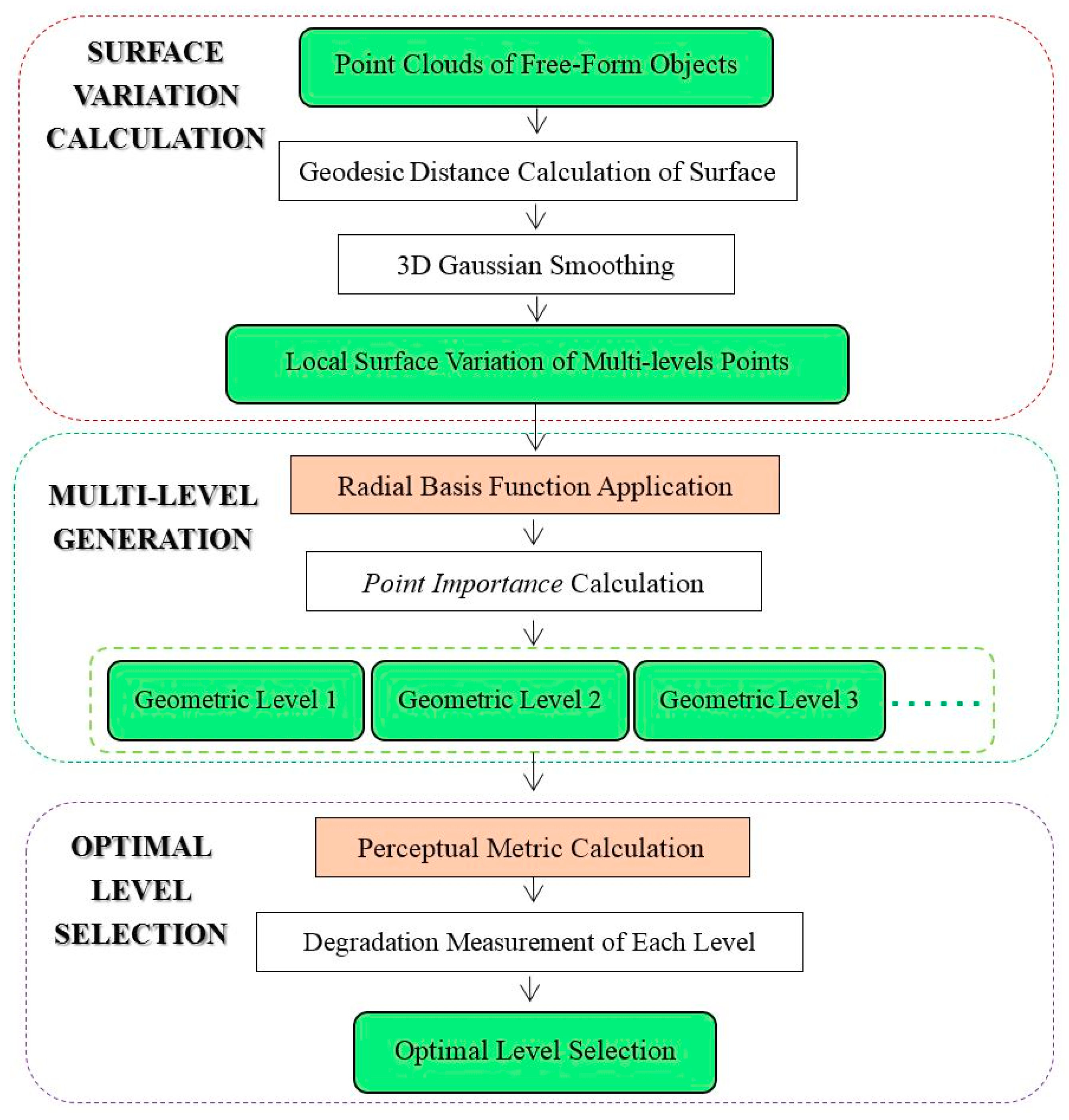Yufu Zang,Bisheng Yang,Fuxun Liang and Xiongwu Xiao
Abstract: Laser scanners are widely used to collect coordinates, also known as point-clouds, of three-dimensional free-form objects. For creating a solid model from a given point-cloud and transferring the data from the model, features-based optimization of the point-cloud to minimize the number if points in the cloud is required. To solve this problem, existing methods mainly extract significant points based on local surface variation of a predefined level. However, comprehensively describing an object’s geometric information using a predefined level is difficult since an object usually has multiple levels of details. Therefore, we propose a simplification method based on a multi-level strategy that adaptively determines the optimal level of points. For each level, significant points are extracted from the point cloud based on point importance measured by both local surface variation and the distribution of neighboring significant points. Furthermore, the degradation of perceptual quality for each level is evaluated by the adjusted mesh structural distortion measurement to select the optimal level. Experiments are performed to evaluate the effectiveness and applicability of the proposed method, demonstrating a reliable solution to optimize the adaptive laser scanning of point clouds for free-forms objects.
Keywords: adaptive representation; geometric multi-level; surface variation; radial basis function; perceptual quality






Download